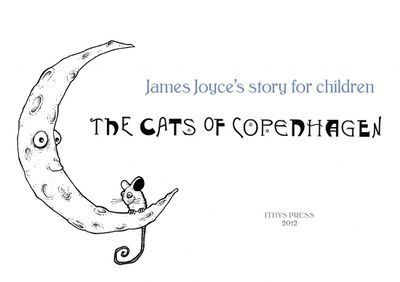Pirates in Joyceland
By J. C.
Several literary estates came out of copyright on January 1, 2012, under the seventy-year rule. You may now, if you are so inclined, reissue the works of Hugh Walpole without first seeking permission (Hans Frost, for example, or Wintersmoon, or any of thirty other perhaps unjustly neglected novels); or of Sherwood Anderson; or the once-influential Elizabeth Madox Roberts.
The works of James Joyce are a different matter.
All the major books are in print, and likely to remain so – but that needn't stop you bringing out your own edition of Finnegans Wake. There is, moreover, a "huge amount of non-published material" in the Zurich James Joyce Foundation, according to the Foundation itself, waiting to be edited. For years, Joyce scholars have visited the Foundation, made notes, then wrestled, often in vain, with the Joyce Estate and its executor, Stephen James Joyce.
Copyright law permits a certain amount of free quotation under "Fair Dealing", but the provision is vague. A snatch of dialogue from Joyce's versions of plays by Gerhart Hauptmann? Maybe. A paragraph from an unpublished letter? Risky. Ever since Salinger vs. Random House, biographers and scholars have trembled before taking even a sentence from unpublished work, fearing lawsuits or pulping. Some estates do nothing to dispel the falsehood that extracts from published writings also require permission.
A Joyce scholar of our acquaintance copied out for his own use what he calls "an extended joke" from a letter in the Zurich Foundation dated September 5, 1936. "It is exactly 242 words long." The letter is addressed to Joyce's four-year-old grandson, Stephen (the same). The little anecdote is now at the centre of a storm about copyright, publishing rights, and the desire of the Foundation to remain in control of Joyceland.
It appears that Anastasia Herbert, or someone acting on her behalf, also copied out the words. Ms Herbert's Ithys Press has published all 242 of them as a book – "a masterpiece of the book-making arts", in her words – which now stands as an uninvited addition to the Joyce corpus: The Cats of Copenhagen. She sees it as "a tribute to Joyce's creative genius"; the Foundation sees it as intellectual property theft, and a grave discourtesy.
Ms Herbert did not tell Zurich what she was about to do because, she says, in Joyceland, to seek permission is to seek trouble. She cites the injunction gained by the Estate preventing the publication of Irish Writing in the Twentieth Century, which "caused serious problems" for Cork University Press. Doubtless, the Joyce Estate cared not a fig for their problems. Why, Ms Herbert asks, should she walk into a trap of her own making, by asking permission to publish 242 words by an out-of-copyright author?
Yet the courtesies are worth observing. A fierce ally of the even fiercer Estate or not, the Zurich Foundation is indispensable to Joyceans. Certain bequests come with restrictions which, as a result of Ithys Press's action, are sure to increase. We have the text of The Cats of Copenhagen before us. Ms Herbert sees in it a "keen, almost anarchic subtext", though where she gets that from goodness only knows. It is not a composed "story" at all, rather a charming scribble to a little boy, the likes of which many grandfathers have written. Two Ithys Press editions are published, at 300 euros and 1,200 euros.
Peter Stothard's Blog
- Peter Stothard's profile
- 30 followers




